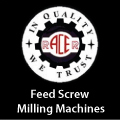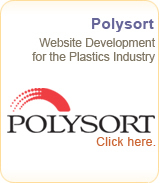
American Extrusion
Contact: Sales Manager
498 Prairie Hill Rd.
South Beloit, IL 61080
US-Illinois
Phone: 815-624-6616
Fax: 815-624-6628
American Extrusion International we are committed to providing the best quality equipment, service, engineering designs, the most knowledgeable staff and the highest integrity in the snack food industry. As a result, we have helped our customers around the world become successful. We measure the success of American Extrusion International by the success of our customers.
We look forward to being of service to your firm and establishing, or continuing, your success in this growing industry.
Sincerely,
Richard J. Warner
President
Plastics 101
Plastic resins come in liquids, powders, or pellets. General Plastics processes its material from pellets. Rail cars and pneumatic trucks deliver material to the plant where it is stored in silos.
A large resin conveying system vacuums resin pellets from the silos to the extruders. In addition to the basic, natural, or clear colored pellets, color additives, fragrance additives, and film conditioning additives are blended into customized recipes for customers.
The resin in solid pellet form falls into the feed section of an extruder and is pulled by a screw.
The screw augers the resin through the extruder barrel, as it is moved it is melted by thermal heat from heater bands around the barrel and frictional heat due to the proximity of the screw and the barrel. The hot melt exits the extruder barrel and is physically filtered through a series of screens to remove impurities. The resin enters the die block and then the die.
Throughout the process the resin is exposed to temperatures from 300 - 400 degrees Fahrenheit. The melt cools as it is pulled from the die to the nip rollers above the die. It is during this phase of the process the plastic, now film, is manipulated and cooled to help bring out various properties.
After it passes the nip roller it can be wound into rolls or converted into bags. Extruding blown film is a continuous operation, most blown film plants operate 24 hours a day.
Plastic bag and film products are used in virtually all aspects of life and are found in nearly every home and business. Can liners, stretch wrap, and bags are common items in most businesses. We have compiled a brief list of high volume applications for plastic bags and films:
* Parts Bags: A multitude of items are packaged by OEM's for shipping.
* Kit Bags: Holds fasteners and small parts for assemblies.
* Anti-Static Bags: For static sensitive parts.
* Can Liners: Trash bags and drum liners with different additives.
* Box Liners: Processed meats, chemical preparations, powdered foods, and pharmaceuticals.
* Dust Covers: Protects warehoused goods from dust and moisture with easily removable sheets or bags.
* Furniture and Mattress Bags: Most mattress bags are a standard size. Furniture bags are normally a large envelope bag.
* Bread bags: High clarity, FDA approved bags for bakeries and food distributors. They come either bottom sealed or wicketed.
* Pallet Covers: Large bags to cover skided material in warehouses and outdoors.
* Gaylord Box Liners: Large 1000-1500 lb boxes are common in many industries to hold bulk materials.
* Publishing Products: Bags and film used to protect magazines, newspapers, and books.




